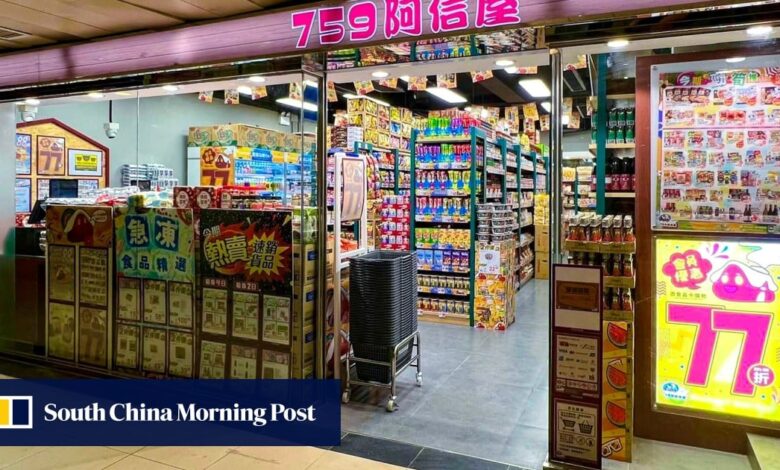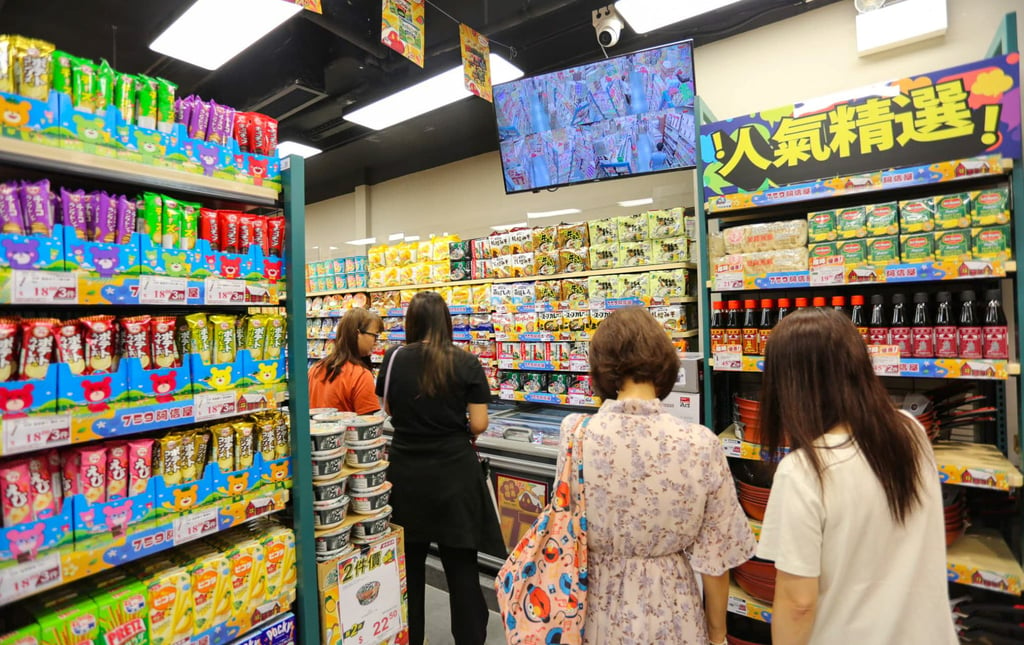Hong Kong grocery chain 759 Store freezes investments, reviews lease deals after losses

CEC International Holdings’ revenue in the financial year ending April 30 fell 13 per cent to HK$1.47 billion, from a year ago, according to its filing with the Hong Kong stock exchange on Wednesday night. In 2023, the company recorded a net income of HK$49.56 million.
“The group will freeze all large-scale investment plans and curtail all non-essential expenditures to maximise the effect of cost-saving,” the filing said.
“On top of that, the management is meticulously examining the performance data for each 759 Store shop. Decisions regarding tenancy renewals will be based on actual shop performance. Concurrently, discussions are underway with landlords to explore potential rental adjustments that could create win-win opportunities for both parties.”

The company closed one store during the period, adding that “the prevalence of vacant shop spaces across various districts in Hong Kong presents both a challenge and an opportunity”.
CEC said it is actively identifying potential sites for new stores, with criteria focused on rental costs, foot traffic, and appropriate shop size to meet its requirements.
759 Stores, known for their array of products imported from other countries including Japan and South Korea, among others, used to have as many as 290 outlets across Hong Kong.
CEC’s cost-saving initiatives come at a time of profound changes in Hong Kong’s retail segment.
In the first five months of the year, retail sales in the city dropped 6.1 per cent to HK$161.5 billion compared to the same period last year, according to official data.
“One of the primary reasons for this decline is the shifting spending habits and travel behaviour of mainland visitors, who comprise a significant portion of the city’s tourist base,” it added.
759 Stores are not alone in bearing the brunt of a sluggish retail market in the city. Japanese fashion retailer GU, a sister brand of Uniqlo, is closing its 6,000 square feet outlet at Hysan Place in Causeway Bay.
An announcement posted on its official app said the shop’s last business day is on September 1. It has nine other outlets in the city, but they are all located in Kowloon or the New Territories.
GU’s sole Hong Kong Island outlet was initially located in the basement of the nearby Windsor House. That space is now occupied by Japanese fashion, home furnishing and food retailer Muji.
The affordable fashion brand moved to its current space in May last year. GU did not immediately reply to a request for comment on Thursday.
“The expected loss is mainly attributable to the fall in retail sales of the group due to an increase in outbound travel, and cross-border consumption and shopping,” it said in a filing with the Hong Kong exchange.
Source link



